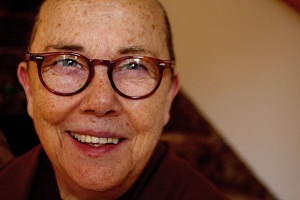I spent two weeks at Plum village, a Buddhist monastery in France. I came to recover from burn out, and what I found was not only wisdom and practice around how to be present with life, but also wisdom on love. While the nuns must abstain from any kind of romantic or sexual activities, they shared heartfelt and grounded advice about dating and romantic relationships. The fact that they must face their desire for romantic love by looking into it deeply, and by cultivating love for the community, they are well equipped to answer any break-ups, marriages and dating questions.
1. The surprising effect of asking why.
When you feel attracted to someone, and before taking it to the next level, stop and ask yourself why. It is easy to attribute it to magic, intuition or chance. But when you actually ask yourself why, it gives you clarity and honesty. According to one of the senior nuns, more often than not when she is attracted to someone she realizes she is actually attracted to a quality they have, that she wishes she had in her. So instead of clinging to the idea of being with that person, she cultivates the quality in her. When I applied the advice to myself, I realized that for the relationships that did not last, my attraction was an expression of my loneliness.








 The Dhamek Stupa. Picture courtesy: India Today Archive
The Dhamek Stupa. Picture courtesy: India Today Archive
